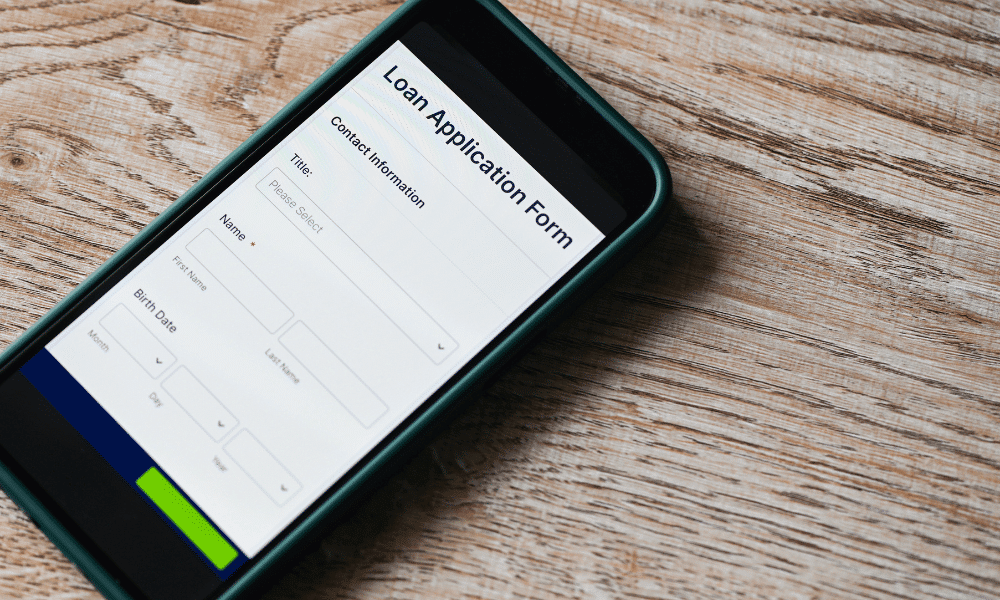What is unsecured working capital?
An unsecured working capital loan is a type of financing that businesses obtain without offering any collateral as security to the lender. These loans provide immediate funds for companies to cover short-term operational costs, such as payroll, inventory, and other day-to-day expenses.
Due to the lack of collateral, they typically carry higher interest rates than secured loans and require a solid credit history and strong business performance for approval.

How does unsecured working capital loans work?
Unsecured working capital loans can include many different products such as business term loans, business line of credit, SBA loans, business cash advance and unsecured credit cards. These various options, frequently provided by diverse online lenders, offer feasible financing solutions fitting a wide array of small businesses' needs. They are often attractive to startups given the absence of collateral requirement, although these could come with higher interest rates as lenders seek to mitigate risk.
Each product has its own unique features, rates, terms, conditions, and max loan amount, which are vital when seeking small business financing. Lenders also carefully evaluate the borrower’s creditworthiness, banking activity, and business performance to determine the appropriate interest rate and maximum loan amount. Below, we'll delve deeper into these products and their features:
Below, we'll delve deeper into these products and their features:
- Simple interest
- Pull funds on demand
- Only pay interest on balance
- Rates are Simple interest or a Factor Rate
- Terms that range from 3 months to 18 months
- Payments that are Monthly, Weekly or in some cases daily (M-F)
- No personal guarantee
- This is a futures sales purchase and not a loan
- Repayment is flexible and based on a set percentage of future sales
- Monthly payments
- Only pay interest on balance
- Convenient use of a card for purchases and expenses
The Most Common Reasons to get an Unsecured Working Capital Loan
Unsecured working capital loans are sought for a variety of pivotal business needs:
- Bridging Cash Flow Gaps: Many businesses experience cyclical or seasonal revenue fluctuations. An unsecured working capital loan can provide the much-needed liquidity during a cash crunch, ensuring seamless operations during quieter months or unexpected downturns.
- Inventory Financing: For companies dealing with tangible products, having a well-stocked inventory is not a luxury but a necessity. These loans allow businesses to make strategic inventory purchases upfront, which is crucial for bars with high turnover rates, thus ensuring they meet customer demand without exhausting their cash reserves.
- Payroll Maintenance: Consistency in salaries and wages is crucial, especially when business revenue isn't steady. Accessing unsecured funds guarantees timely payroll, fostering loyalty and employee morale during both rent and utility bill paying periods.
- Marketing and Expansion Efforts: Growing a business often necessitates an investment in marketing, outreach, or even physical expansion. An unsecured loan provides the immediate capital required to seize these growth opportunities or pay off pending invoices hassle-free.
- Facing Unexpected Challenges or Opportunities: The business landscape is rife with unpredictability, from sudden equipment failures requiring repairs to unanticipated market openings. Quick access to collateral-free funds through an unsecured working capital loan empowers companies to adapt and thrive amidst changing circumstances without worrying about long-term debt financing.
Testimonial from a small business owner who used a working capital loan
“As a boutique owner in Atlanta, I needed extra capital to expand my inventory for the holiday season but didn’t have collateral to offer,” said Tasha Greene, founder of Urban Luxe Apparel. “An unsecured working capital loan gave me the flexibility to act fast—I received $40,000 in just a few days. That boost allowed me to stock up on trending items, meet the surge in customer demand, and increase my holiday revenue by over 30%. It was a game-changer and proved that you don’t always need assets to secure the funding your business needs.”
Alternative financing options like invoice factoring may also be available for businesses dealing with fluctuating receivables, offering a way to bridge sudden gaps in cash flow.


What are the Advantages and Disadvantages of Unsecured Working Capital Loans?
Advantages of Unsecured Working Capital Loan:
- No Collateral Required: For the convenience of businesses, they don't need to pledge assets, safeguarding them from potential loss in case of loan default.
- Quick Approval and Disbursement: The convenience of unsecured working capital loans also extend to their generally faster approval process, ensuring businesses get funds when they need them.
- Flexibility: These loans typically provide flexible terms, allowing businesses to choose repayment structures that match their cash flow patterns.
- Credit Building: Regular repayment can enhance a company's credit profile, potentially opening opportunities for more profitable financial dealings in the future.
- Minimal Documentation: Adding to the aspect of convenience, unsecured loans typically require less paperwork than their secured counterparts, simplifying the application process.
- Ability to Seize Opportunities: Quick access to funds allows businesses to act on opportunities for profitability or manage unexpected challenges more effectively.
- Preserving Ownership: Unlike equity financing where shares are sold for capital, unsecured loans ensure business owners maintain full control of their enterprise.
- Transparent Costs: Most unsecured working capital loans have clear terms with no hidden fees, allowing businesses to plan repayments and capitalize on supplier discounts with certainty.
Disadvantages of Unsecured Working Capital Loans:
- Elevated Interest Rates: Absence of collateral increases the lender's risk, often resulting in heftier interest charges compared to secured loans.
- Constricted Repayment Timeframes: These loans typically call for quicker repayments, potentially adding pressure on a company's monthly financial obligations.
- Rigorous Approval Standards: The eligibility criteria for these loans can be stringent. Without collateral as a safety net, lenders place emphasis on creditworthiness and business viability, making eligibility a hurdle for some enterprises.
- Entanglement of Personal Finances: There's a risk that lenders will ask for personal guarantees, intertwining the owner's personal finances with business liabilities.
- Capped Borrowing Potential: While there is convenience in unsecured loans, the amount businesses can borrow is generally lower, which might not fully address the company's monetary requirements.
- Dense Repayment Schedules: Some structures demand frequent payments—often weekly or even daily—which can strain the company's regular cash flow.
- Costly Consequences for Defaults: Missing payments can result in substantial penalties, bringing in an unforeseen discount in your profitability.
- Credit Score Vulnerability: While prompt repayments can be beneficial, any lapses can tarnish the business's credit profile, jeopardizing future financing prospects.
- Inflexible Loan Terms: With preset conditions, there's scant wiggle room to modify the terms to cater to unique business scenarios.
- Overcommitment Risk: The relative ease and convenience in obtaining these loans might lure businesses into overextending themselves, leading to challenging debt situations. Ensure you check your eligibility criteria before opting for such a loan.

How to apply for Unsecured Working Capital Loans with Working Capital Lenders
- Qualifications: Determine your qualifications for products by talking to a business funding advisor about credit, documentation and financial credit worthiness.
- Application: Apply by providing an application that has both personal and business information. As part of the pre-approval process you will need to provide documentation such business bank statements and in some cases other financial documents to secure an offer.
- Offer(s): Receive offers from lender(s) and compare product features, rates, terms and conditions to fund. Always shop and compare offers before making decisions.
- Selection: When and if you make a selection, you will need to sign an agreement and provide closing documentation to receive final approval.
- Final Underwriting: Once signed agreement and closing conditions are provided to the lender/funder the underwriter will perform quality control verifications and clear conditions to fund.
- Funding: When a clear-to-fund is issued by the lender/funder, repayment process is set up and funds are sent to your business bank account via a wire or ACH.

Frequently Asked Questions
Are Unsecured Working Capital Loans a Good Idea?
Indeed, having a credit facility can tremendously aid businesses in need of working capital. Always consider the demands for working capital versus the cost of a loan before making a decision. It's important to remember that bankers often promote unsecured working capital loans with their interests in mind, so seek professional guidance when deciding.
How much money can I receive through an unsecured Working Capital Loan?
The amount you can receive from a working capital loan is determined by multiple qualification factors including revenue, credit, cash flow management, industry, time in business, etc. Generally speaking, you could receive up to 100% of your monthly revenue deposits as a guide if you plan to repay the loan within a year.
Working Capital Loan vs Line of Credit: Which One Is Better?
Choosing between a working capital loan and a line of credit depends on how your business manages cash flow, your need for flexibility, and your repayment strategy. Bottom Line: Choose a working capital loan if you need a fixed amount upfront for a specific short-term goal. Choose a line of credit if you want flexible, ongoing access to funds to manage variable cash flow.
What documents are needed for an unsecured working capital loan?
Typically, banks will require an application and 2-3 months of your most recent business bank statements for most unsecured working capital loans. Depending on the loan size, your bank may request additional documents such as a business tax return.
Can I get an unsecured working capital loan with Bad Credit?
Bad credit can complicate the funding process but it's not an absolute barrier for attaining working capital for your business. However, it will limit the type of working capital loans you may qualify for and impact both the rates and terms accordingly. Don't let a negative credit score deter you from exploring all possibilities.
The Bottom Line about Unsecured Working Capital Loans
As will all business financing options, you should always consider the cost verses the benefit of acquiring unsecured working capital loans for your business. This includes examining alternative options such as flex capital, equipment financing and invoice financing depending on your distinct financing needs. Your need is always the most important driver of the decision.
Working capital is essential to the operation of most businesses and having a credit facility in place for your business can be a lifesaver. It allows the business to take advantage of opportunities such as acquiring specific equipment through equipment financing, or smoothly cover short-term expenses like paying invoices made possible by invoice financing.












